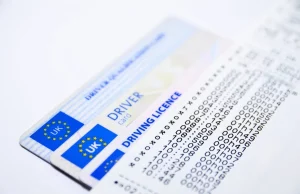Buying a car, whether it’s your first or your fifth, can often feel overwhelming. There’s a lot to consider from your budget and financing options to the type of vehicle that best suits your lifestyle. With so many choices available, it’s important to equip yourself with the right knowledge to make a confident, informed decision. This guide will offer seven key tips to ensure your car-buying journey is as smooth as possible. Let’s set the wheels in motion.
Determine Your Budget
Before darting straight into the car-buying process, the first and foremost step is to determine your budget. Recognize your financial capabilities and set a realistic budget that won’t strain your finances. Remember, owning a car costs beyond the initial purchase price, considering things like insurance, gas, and maintenance.
Consider both the upfront cost and the ongoing costs. If you plan to finance your car, aim for a monthly payment that fits comfortably into your budget. Try to keep the term as short as possible to reduce the total interest you pay. Be sure to research things such as what happens if you don’t pay your car installment on time, or how long the loan contract is for. This will give you a clearer picture of what you can afford.
Understand Your Needs
Your vehicle should suit your lifestyle and daily needs. Are you looking for a compact car for daily commuting, or do you need a larger vehicle for family road trips? How important is fuel efficiency to you? Understanding these factors will guide you in narrowing down your options. Think about the features that are essential to you. If you have small children, you might prioritize safety features and the number of seats. If you often drive in bad weather, look for cars with specific capabilities, like all-wheel drive.
Additionally, consider the cost of ownership. A car with a higher fuel efficiency rating may be more expensive to purchase upfront, but it can save you a significant amount in the long run. On the other hand, if you plan on keeping your car for a long time, investing in certain features and upgrades may be worth it. Be sure to weigh all aspects and make a decision that aligns with your needs.
Research Before You Shop
Once you have a clear idea of your budget and needs, it’s time to do some research. Compare different car models within your budget, read reviews, and check their reliability ratings. Look into the ownership costs for each car, including depreciation, maintenance, insurance, and fuel efficiency. Don’t rush this step. Take your time and gather as much information as possible. This will ensure you make a well-informed decision when it comes time to buy.
For starters, visit car manufacturer websites to get an idea of the features and prices for various models. You can also check out third-party websites that offer comparisons between different makes and models. Additionally, ask friends or family members who have recently bought a car about their experience and if they have any recommendations.
Preapproved Loan And Financing
Getting preapproved for a car loan can give you a clearer picture of what you can afford and put you in a stronger position when negotiating the price. Contact your bank or credit union to explore your options. Remember, the goal is to secure the best interest rate possible. When considering financing options, be mindful not just of the monthly payment, but also of the total cost over the term of the loan. A lower monthly payment might sound appealing, but it often means you’re paying more in interest over time.
Test Drive Your Options
Once you have a shortlist of potential cars, it’s time to take them for a test drive. A car might look great on paper, but it’s crucial to see how it feels on the road. Pay attention to visibility, seating comfort, ride quality, noise levels, and how the vehicle handles. During the test drive, try to replicate the conditions you’ll be driving under daily. If you commute on the highway, take the car on the highway. If you drive in a city, see how it handles stop-and-go traffic.
Keep in mind, that a car’s performance can also vary based on the weather conditions. If possible, test drive your options in different weather conditions to get a better understanding of how it performs in various situations.
Car Inspection And History Report
If you’re considering buying used, it’s crucial to get the car inspected by a trusted mechanic and check its vehicle history report. The inspection can reveal potential issues that may not be apparent at first glance and save you from future repair bills. The vehicle history report can provide important information about the car’s past, like accident history, odometer readings, and previous owners. This report can be a valuable tool in ensuring you’re making a sound purchase.
In addition to a mechanic inspection and vehicle history report, also take the time to inspect the car yourself. Check for any signs of damage or wear and tear, such as rust, dents, or scratches. Also, pay attention to the interior condition, including stains and odors. Be sure to address any concerns or red flags before finalizing your purchase.
Negotiate The Price
Finally, don’t be afraid to negotiate. Dealerships expect it, and it could save you significant money. Remember, the sticker price is usually marked up, so there’s generally room for negotiation. Stick with your budget and don’t be afraid to walk away if the deal doesn’t feel right. Negotiation is a skill, and like any other skill, it requires practice. Do your homework, know the car’s value, and be confident in your approach. Remember, the goal is to get the best possible deal for your budget.
In conclusion, buying a car is a considerable investment that requires careful thought and planning. From setting a budget and understanding your needs to doing your research and negotiating the price, each step of your car-buying journey is crucial. With these seven tips, you should feel better equipped to make an informed and confident decision, ensuring your car buying experience is efficient and enjoyable, and leads to a choice you’ll be satisfied with long-term. Happy car hunting!














